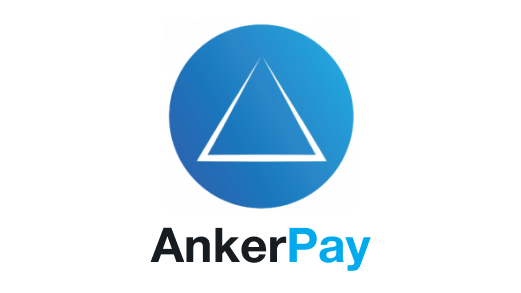

52363
AnkerPay
AnkerPay empowers people to use and pay in crypto currencies
South Africa
Market: Blockchain, Crypto currency
Stage of the project: Operating business
Date of last change: 27.05.2021
South Africa
Market: Blockchain, Crypto currency
Stage of the project: Operating business
Date of last change: 27.05.2021
Idea
The AnkerPOS gives anyone the freedom to pay for services buy or sell Bitcoin, with other digital assets to follow. Currently, AnkerPOS API is being integrated into 2800 retail stores, with more to follow in Australia, Zambia and Botswana. Merchants such as restaurants, auctioneers and casinos can use the AnkerPOS to accept digital assets and receive payment in Bitcoin. Select merchants can also sell. Settlements happen in Fiat, so there is no risk of fluctuation.
Current Status
The most in-demand product that AnkerPay has built is the AnkerPOS API suite. It is currently integrating with the largest POS provider in Africa and payments will be made available at 3000 plus retail stores in South Africa. The easy-to-implement API suite from AnkerPay allows for crypto payments to be made in-store. Settlements are then made in the local currency(in South Africa’s case the Rand) to the store, meaning there are no risks for merchants due to market fluctuation. AnkerPay is gearing up to take the AnkerPOS service across Africa, Australia, Europe, and Dubai.
Market
Our main focus for expansion is onboarding more and more large point of sale companies to ultimately service large segments. Currently, AnkerPay has onboarded the biggest POS provider in Africa and final QA testing is being done in the first week of June. With an expected launch date in South Africa around the end of June early July.
Problem or Opportunity
Currently, research shows 17% of South Africans have a form of crypto with that number being higher in Nigeria and other parts of Africa. This is because of various reasons. Bad monetary policy, a lack of banking infrastructure, and relatively high banking costs create the perfect conditions for crypto adoption. That has already translated into real word peer-to-peer transactions in large parts of Africa and led to the “rush for Africa” among crypto companies since it is seen as “the final frontier”.
Solution (product or service)
The AnkerPOS API has the various needs for large Point of Sale service providers in order to accept various cryptocurrencies. Currently, AnkerPOS supports Bitcoin, Litecoin, Nano, and Dash. AnkerPay also has partnerships with these groups and they actively support and promote the AnkerPay products for that reason. What is important to note is that various countries and their reserve banks are currently working on their own crypto coins that will be backed by the official currency. In this case, AnkerPay will be in the position to implement and accept those coins immediately. Furthermore, AnkerPay and its partners are working on small cross-border transactions that will facilitate peer-to-peer transactions for residents in neighboring countries. Currently a massive market in Africa.
Competitors
In Africa not that we are aware of. What differentiates us from Something like PundiX is that Pundi goes halfway by just selling the cryptocurrency for a stable coin like Tether.
Advantages or differentiators
We have found that companies do not want to deal with that; they much prefer the fiat currency and have to deal with conversions. This is especially true in Africa where the spot price is only loosely connected to the international price and varies day by day. We think that this complete solution is one that truly solves all the issues associated with using cryptocurrencies
Finance
The current implementation is set for the merchant to the same fees as VISA or 1.8% and 1.2% for the user. This brings the total to 3%. South Africa alone has roughly 9 million people with cryptocurrencies. There are also a number of cryptocurrencies for whom it will be worth a lot in order to be on a platform like AnkerPOS, which can be monetized depending on the market.
Business model
Please find a detailed breakdown of the Cashflow model and projections in the Pitch deck attached.
Money will be spent on
Mainly expansion into different countries and setting up the infrastructure in order to do so.
Offer for investor
$ 700,000 - 10%
$ 2,500,000 - 25%
$ 2,500,000 - 25%
Team or Management
Risks
The obvious risk is that countries try to ban cryptocurrencies. However, his seems to look less and less likely as we see more reserve banks and governments across the world embracing the technology.
Incubation/Acceleration programs accomplishment
NA
Won the competition and other awards
NA
Photos


Presentation
Sign in/Sign up